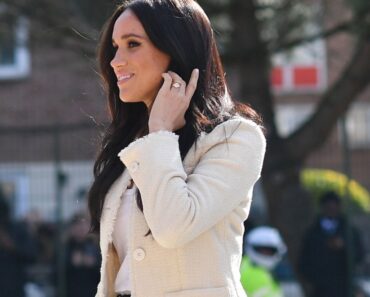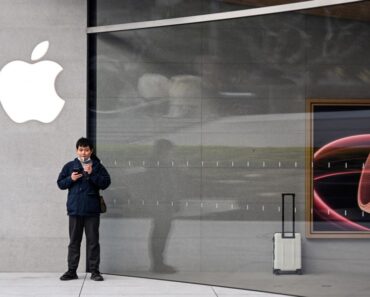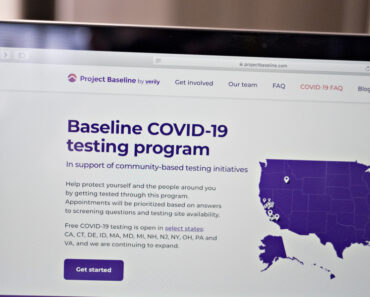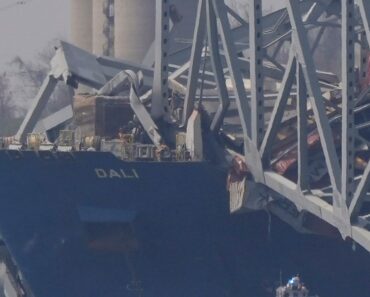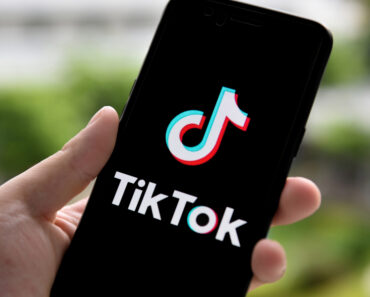This post was originally published on this site
LVMH boss Bernard Arnault has a problem—a Donald Trump problem.
The world’s third-richest man, 70, saw his $104 billion personal fortune slip by an estimated $1.6 billion on Tuesday after the U.S. Trade Representative announced tariffs of up to 100% on luxury French manufacturers, including LVMH-owned fashion houses Bulgari, Christian Dior, and Louis Vuitton and Champagne-maker Moët & Chandon.
Should they be implemented in January, the tariffs—launched in retaliation to France’s new Digital Services Tax (DST) on Silicon Valley giants such as Twitter, Google, Facebook and Amazon—will strike at the heart of Arnault’s sprawling business empire, which recorded total revenue of close to $52 billion in 2018, according to company figures.
On Tuesday, the share price of LVMH—which is 50% owned by Arnault—fell 1.5% following the tariff threat, costing the fashion magnate around $1.6 billion in a single day of trading. The stock has since gained back half the losses to stand at around $441 a share as of Thursday morning.
Data from Factset also showed the total market value of Arnault’s holdings as $104 billion on Tuesday, a dip of $4 billion from the previous Friday.
Change of fortune
The downward trajectories immediately follow upbeat news for Arnault, who just last week announced LVMH’s $16.2 billion deal for storied New York jeweler Tiffany. The deal will add yet another world-famous luxury brand to his portfolio of glamorous names, and push him closer to the title of “world’s richest person.”
Speaking on the first day of the NATO conference in London on Tuesday, Trump was unapologetic about his decision to target French luxury brands and directly criticized the French digital tax for targeting U.S. companies.

“I’m not going to let anyone take advantage of American companies,” Trump told reporters of the tax that will introduce a 3% levy on the revenue earned in France by the tech titans, many of which are based in the U.S.
“I don’t want France to be taxing American companies. If
anyone’s going to tax American companies, it’s us,” he added.
When the U.S. Trade Representative Ambassador Robert Lighthizer first mentioned the potential tariffs on Monday, the effect was immediate: shares in Arnault-owned Christian Dior dropped by 1.5% Tuesday, with rival luxury group Kering, owner of fashion icons Gucci, Yves Saint Laurent and Balenciaga, also losing around 1.9%. Shares in both Dior and Kerring have since recouped around three-quarters of their losses.
A second hit
The new tariff threat is the second to hit France—and Arnault himself—in recent months. On October 18, the Trump administration imposed tariffs of 10% on large civil aircraft and 25% on European products ranging from whiskey and wine to handbags to men’s suits, in response to $18 billion in government subsidies provided to Airbus by France, Germany, Spain, and the U.K.—subsidies the World Trade Organization has deemed illegal.
This hit a variety of businesses—from Scottish Whiskey distillers to the makers of Roquefort and Gruyère cheese—but the blow to LVMH has been considerable because its Moët Hennessy department controls 26 separate wine and spirit makers, such as Dom Perignon, Krug, Veuve Clicquot, and Hennessy. Its vast fashion holdings also include an array of high-class leather goods manufactured for labels such as Givenchy, Kenzo and Louis Vuitton.

At the same time, the U.S. luxury goods sector is also a major LVMH market. According to Bloomberg data, U.S. shoppers snapped up $12.4 billion worth of LVMH goods in 2018—around 25% of its global sales.
The U.S.-France conflict that escalated this week strikes at the heart of the French luxury sector, which accounts for 4.1% of total French exports to the U.S, according to Panjiva, S&P Global Market Intelligence. In total, the proposed tariffs target 63 products with an approximate trade value of $2.4 billion. Among these, beauty products will be most affected, having recorded $842 million in U.S. imports over the past 12 months, followed by Champagne ($806 million) and handbags ($434 million).
While beauty giant France’s L’Oreal is the largest shipper of beauty products into the U.S., LVMH is likely to really feel the pain of the tariffs since its product range includes all three top affected categories.
LVMH did not immediately return Fortune‘s request for comment.
The firms in the firing line may find solace in the tariffs only being a threat at this point—they’re not guaranteed to go into effect—though tensions remain high.
“This is not the sort of behavior one expects from the United States with respect to one of its main allies, France, and to Europe in general,” French Economy Minister Bruno Le Maire told Radio Classique on Tuesday. “We were in contact yesterday with the European Union to ensure that if there are new American tariffs there will be a European response, a strong response,” he said.
For now, the conflict between the U.S. and France seems far from a resolution—and so, in turn, does Arnault’s pricey problem.
More must-read stories from Fortune:
—Want a SIM card in China? You’ll now need to get your face scanned first
—CEOs are facing fierce pressure on climate change—from their own kids
—2020 Crystal Ball: Predictions for the economy, politics, technology, and more
—In the wake of Brexit, Amsterdam is the new London
—These are the jobs artificial intelligence will eliminate by 2030
Catch up with Data Sheet, Fortune’s daily digest on the business of tech.

